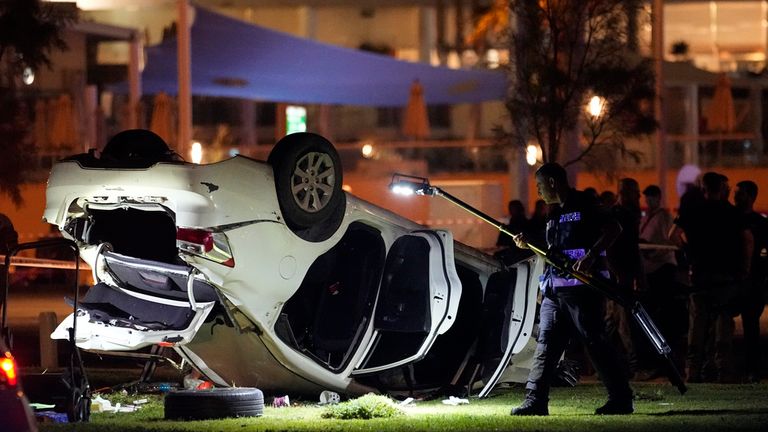
An Italian tourist has been killed and several people injured in a terror attack in Tel Aviv, hours after it was confirmed that two women who died in a West Bank shooting were British.
The attack in the Israeli city happened on Friday night when a car hit four people near the Charles Claure Promenade, police said.
The ambulance service said all the victims were foreign tourists, while Italian authorities confirmed the person who died was one of its citizens.
A police officer was at a petrol station when they “heard a noise and noticed a car upside down, and several people lying on the floor”, according to a statement.
Officers approached and “neutralised the driver and killed him” after seeing that he was reaching for a weapon.
The two British women killed in the West Bank shooting earlier on Friday were sisters – one aged 15 and the other in her 20s, according to local media.
Their mother was seriously injured in the attack near the Hamra settlement – about 30 miles north of Jerusalem – and had to be airlifted to hospital.
It came after Israel launched morning strikes on Lebanon and Gaza in response to rocket attacks on Thursday that it blamed on militant group Hamas.
Prime Minister Benjamin Netanyahu said he had ordered the mobilisation of border police reserve units and extra IDF (Israel Defence Forces) personnel “to confront the terror attacks”.
Tensions are high in the region following police raids on Al Aqsa Mosque in Jerusalem this week.
Sky News Middle East correspondent Ali Bunkall said it’s believed the British victims of the West Bank attack moved to Israel around 2005.
Pictures from the scene show several cars badly damaged on the side of the road.
Their father was behind in another car when the attack happened, according to Oded Revivi, the mayor of a settlement near Bethlehem where the family lived.
Sky’s correspondent said the targeting of cars with Israeli number plates in the West Bank had become “far more commonplace in the last few weeks”.
Mr Netanyahu and defence Minister Yoav Gallant visited the site of the shooting late on Friday.
“It’s just a matter of time, and not much time, until we settle the score,” Mr Netanyahu said.
Road blocks were set up to try to find the attackers.
No group has claimed responsibility but a Hamas spokesman hailed it as “retaliation for the crimes committed by Israel in the West Bank and the Al Aqsa mosque”.
A UK Foreign Office spokesperson said in a statement: “We are saddened to hear about the deaths of two British-Israeli citizens and the serious injuries sustained by a third individual.
“The UK calls for all parties across the region to de-escalate tensions.”
The clashes at Jerusalem’s Al Aqsa compound this week came at the start of the Jewish festival of Passover, which this year crosses over with Ramadan.
The site is extremely sacred to both Muslims and Jews and tensions over access and control often spill over into violence.
Read more:
Why is there tension over Jerusalem holy site?
Israel’s pre-dawn airstrikes on Friday hit different areas of Gaza, including tunnels and weapons-making sites of Hamas – the group that controls the blockaded coastal strip.
Hamas targets in southern Lebanon were also attacked, according to Israel’s military.
There were no reports of serious injuries but the Palestinian Health Ministry said a children’s hospital in Gaza had been damaged.
Israel said its retaliation followed 34 rockets fired from Lebanon on Thursday – one of the heaviest such attacks since its 2006 war with Hezbollah.
Authorities said 25 of the rockets fired at Israel were intercepted by air defences.
Most of those that made it into Israeli territory hit open areas, but a house was hit by shrapnel when one landed in the town of Sderot.

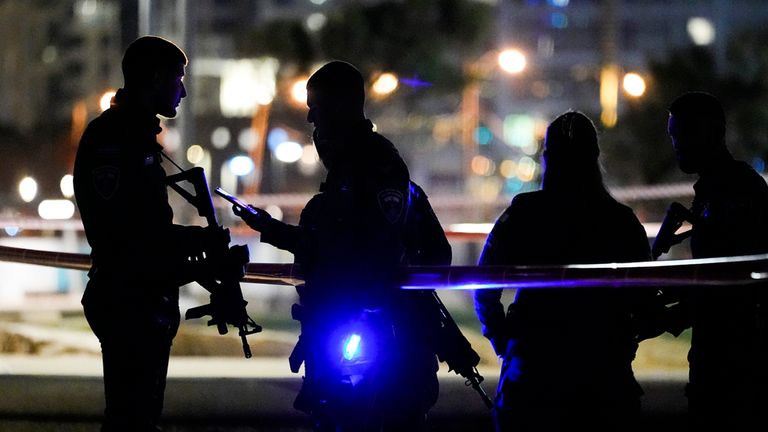
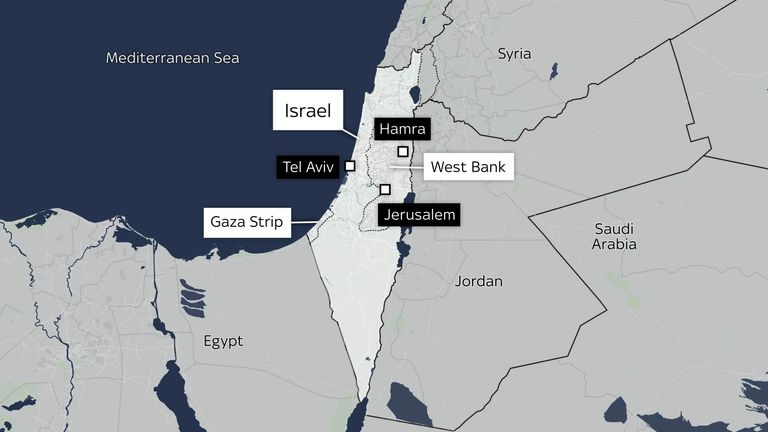
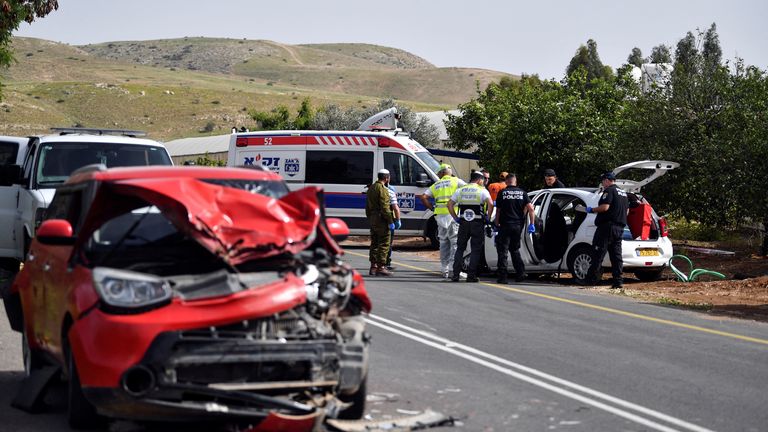
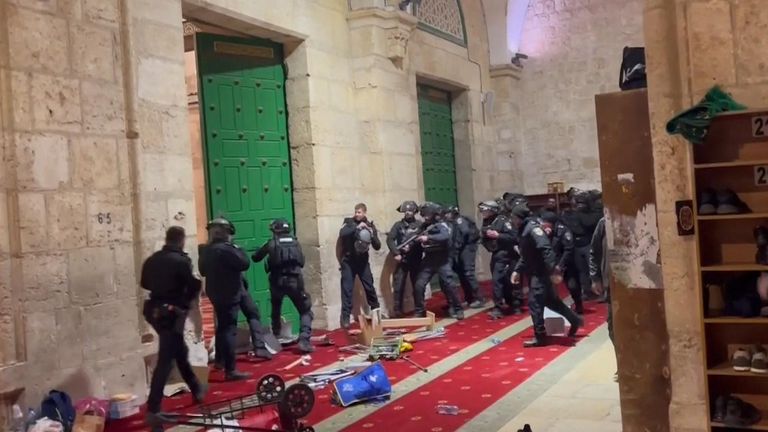
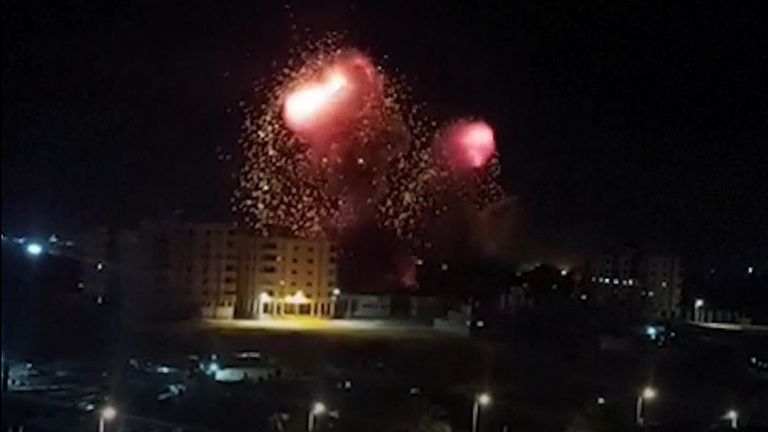
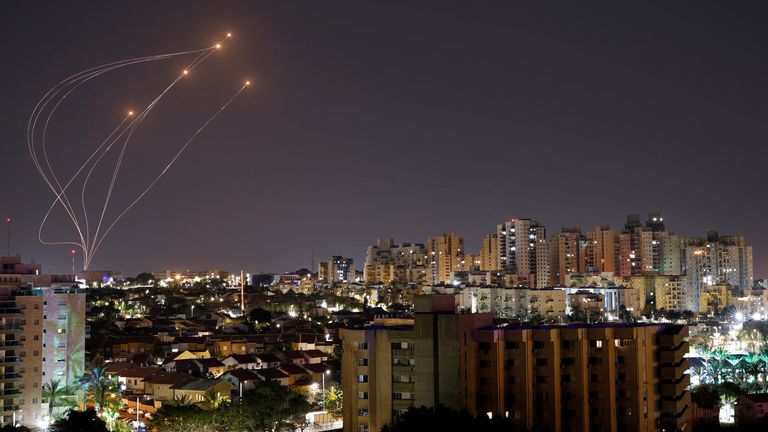
/cdn.vox-cdn.com/uploads/chorus_asset/file/24916158/IMG_2125.jpg)
/cdn.vox-cdn.com/uploads/chorus_asset/file/24759174/hero_about_living_room.png)
/cdn.vox-cdn.com/uploads/chorus_asset/file/25231421/UI___Whimsical_tiger_as_oil_painting.jpg)